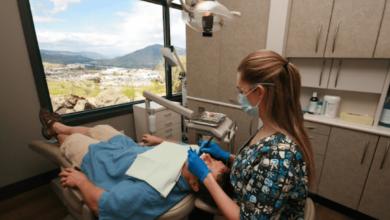Top Skills Needed for Remote Medical Scribes

Working as a remote medical scribe is a demanding job that requires a unique blend of medical knowledge, technical proficiency, communication skills, and professional attributes. Here, we discuss the top skills remote medical scribes need to excel in their roles.
1. Medical Terminology Proficiency
One of the fundamental skills required for a remote medical scribe is an extensive understanding of medical terminology. A medical scribe is expected to transcribe various medical documents, including patient histories, examination notes, diagnostic results, treatment plans, and follow-up instructions. Familiarity with medical terminology ensures that the scribe can accurately and efficiently document patient encounters without frequent interruptions to consult external references.
2. Attention to Detail
Attention to detail is crucial in the medical field, where even minor errors can lead to significant consequences. Remote medical scribes must be able to transcribe details from patient meticulously encounters into electronic health records (EHRs) with a high degree of accuracy. This skill helps to maintain the integrity of the patient’s medical records, which is essential for ongoing patient care and legal documentation.
3. Excellent Listening Skills
A remote medical scribe’s primary job is to listen to and document patient interactions. This requires excellent listening skills to catch every detail mentioned during patient visits, whether these interactions are live or pre-recorded. Practical listening skills ensure the scribe accurately captures the physician’s notes and patient information, contributing to high-quality healthcare documentation.
4. Fast and Accurate Typing
Speed and accuracy in typing are critical skills for remote medical scribes. Since much of a scribe’s work involves transcribing spoken words, the ability to type quickly and without errors significantly improves efficiency. A scribe must also be able to keep up with the pace of patient visits, ensuring that all relevant information is recorded in real-time.
5. Knowledge of Electronic Health Records (EHR)
Proficiency in using Electronic Health Records (EHR) systems is a must for remote medical scribes. EHR software is used in the healthcare industry to store and manage patient information securely. Understanding how to navigate, input data, and retrieve information from these systems is essential for maintaining organized and efficient patient records.
6. Strong Organizational Skills
Remote medical scribes should have strong organizational skills to manage various tasks effectively, patient records, and deadlines. They must prioritize tasks, manage time efficiently, and promptly complete documentation. Efficient organization helps minimize errors and ensure a smooth workflow.
7. Adaptability and Flexibility
The healthcare environment is dynamic, with frequent changes in protocol, procedure, and technology. A remote medical scribe must be adaptable and flexible, open to learning new systems or guidelines as required. This adaptability ensures they can maintain high performance even when faced with new challenges.
8. Communication Skills
While much of a medical scribe’s work is behind the scenes, strong communication skills are still essential. Remote medical scribes must communicate effectively with healthcare providers to clarify details, verify information, or report discrepancies. Clear and concise communication ensures that all parties are on the same page, preventing misunderstandings and promoting efficient collaboration.
9. Understanding Medical Procedures and Diagnostics
A deep understanding of standard medical procedures, diagnostics, and treatments benefits a medical scribe. This knowledge helps in accurately documenting the specifics of medical encounters. For example, understanding the steps of a physical examination or the implications of test results can help a scribe provide more detailed and valuable notes.
10. Discretion and Confidentiality
Medical scribes deal with sensitive patient information that must be kept confidential. To protect patient information, a remote medical scribe must exercise discretion and adhere to privacy laws such as HIPAA (Health Insurance Portability and Accountability Act). Maintaining confidentiality is crucial for earning the trust of patients and healthcare providers.
11. Problem-Solving Skills
Remote medical scribes occasionally need help with unclear recordings, ambiguous terminology, or discrepancies in patient records. Problem-solving solid skills enable them to address and resolve these issues efficiently. Thinking critically and finding solutions ensures that documentation is accurate and complete.
Read also: Can Fruits Help improve Men’s Health?
12. Time Management
Effective time management is essential for remote medical scribes who work on a tight schedule. They must be able to manage their time wisely, setting priorities and meeting deadlines without compromising the quality of their work. Good time management skills help maintain productivity and reduce stress.
13. Basic Clinical Knowledge
While not necessarily required to be as extensive as a healthcare provider’s, having basic clinical knowledge is advantageous for a medical scribe. Familiarity with the typical symptoms, potential diagnoses, and standard treatments helps scribes understand the context of a medical encounter, enabling more accurate documentation.
14. Computer Literacy
In addition to EHR proficiency, general computer literacy is essential for remote medical scribes. They need to be able to troubleshoot common computer issues, navigate various software applications, and use productivity tools efficiently. Good computer skills contribute to a smoother workflow and reduce the likelihood of technical disruptions.
15. Professionalism
Remote medical scribes must exhibit a high level of professionalism. This includes reliability, punctuality, and a commitment to producing high-quality work. Professional behavior fosters trust and respect from healthcare providers and ensures the scribe’s role is taken seriously within the medical team.
Summary
In summary, remote medical scribes are pivotal in ensuring accurate and efficient documentation within the healthcare system. The blend of skills required—from medical knowledge and attention to detail to fast typing and proficiency in data entry medical records and EHR systems—highlights the complexity and importance of this role. By mastering these essential skills, remote medical scribes can contribute significantly to the quality of patient care and the efficiency of healthcare operations. Aspiring remote medical scribes should continually improve these skills to excel. Remember, a remote medical scribe’s ultimate goal is to support healthcare providers in delivering the best possible care for patients. By honing these top skills, they can fulfill this responsibility with excellence. Keep learning, and keep growing!




